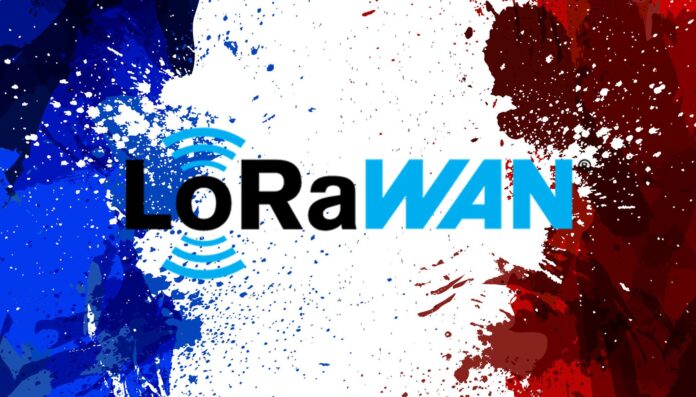Orange has committed to non-cellular IoT connectivity technology LoRaWAN “beyond 2027”. The France-based mobile operator effectively told the SIDO Lyon, the major France-based IoT and AI trade fair, today (September 20) that it will continue to support the development of its public LoRaWAN network in the country, as well as the deployment of enterprise IoT projects on it, indefinitely – or for the next five years at least.
Eighteen months ago, amid some turmoil for the non-cellular end of the low-power wide-area networking (LPWAN) industry, Orange issued a statement to reaffirm its support for LoRaWAN in France “until at least 2027”. The news was greeted with some relief at the time, after fellow operator Bouygues Telecom said it would shut down its public LoRaWAN network in France from 2024, and stop selling LoRaWAN immediately.
The statement also went some way to distance LoRaWAN from the deflected chaos coming out of Sigfox, its long-time adversary in the non-cellular LPWAN space, which had just filed for receivership and bankruptcy in France and the US, respectively. Sigfox has since been bought by Unabiz, and reinvented as a humbler and more useful and compatible companion technology for its old LPWAN rivals in global markets, including cellular-based NB-IoT and LTE-M.
Orange’s latest statement, to support public LoRaWAN until some point beyond 2027, is a powerful statement as well about the continued value of LoRaWAN, in terms of the maturity of its solutions and vibrancy of its ecosystem, even in the face of Orange’s own LTE-based LPWAN technologies, and even while cellular 5G expands as an IoT workhorse in the longer term – notably, perhaps, with its introduction in reduced-capability (RedCap) form.
The operator pointed to key customer contracts for LoRaWAN-based IoT solutions, notably for smart metering with Birdz (Veolia), smart tracking with Invoxia, and waste management with BH Technologies. It cited the smart agriculture and smart cities segments, particularly. Last time, 18 months ago, it pointed also to its collaborations with Microsoft and Amazon in the LoRa Alliance. The story certainly makes for good reading for the LoRaWAN crowd.
Etienne Robert, director of IoT and interactive solutions at Orange Business, commented: “In France, the LoRaWAN ecosystem has experienced significant growth, and many companies have started to deploy major IoT projects. At Orange, we believe in LoRaWAN technology, recognized for its efficiency in both static and mobile environments. It guarantees optimised energy consumption of connected objects – a real societal issue to which we are committed.”
The firm also emphasised its credentials as a system integrator business, at home and in international markets, claiming “adapted solutions” that draw from a range of both cellular and non-cellular connectivity technologies, along with all the compute functions in-back and software gubbins on top, to “meet the needs and challenges of customers, regardless of their sector”. Orange connects and manages 36.4 million IoT devices (“connected objects”) globally; 16.4 million of these are managed by Orange Business in France, it said.
Curiously, as a footnote in an email exchange, there was no mention of LTE-based LPWAN technologies in a throwaway summary of its IoT connectivity portfolio. It stated: “Our IoT solutions are based on a range of technologies specifically adapted to diverse use cases, leveraging both the power of 5G to meet data volume and quality of service requirements and LoRaWAN technology.”
It added, as well: “IoT continues to reveal its full potential. We look forward to continuing its democratisation and imagining the use cases of tomorrow.”

